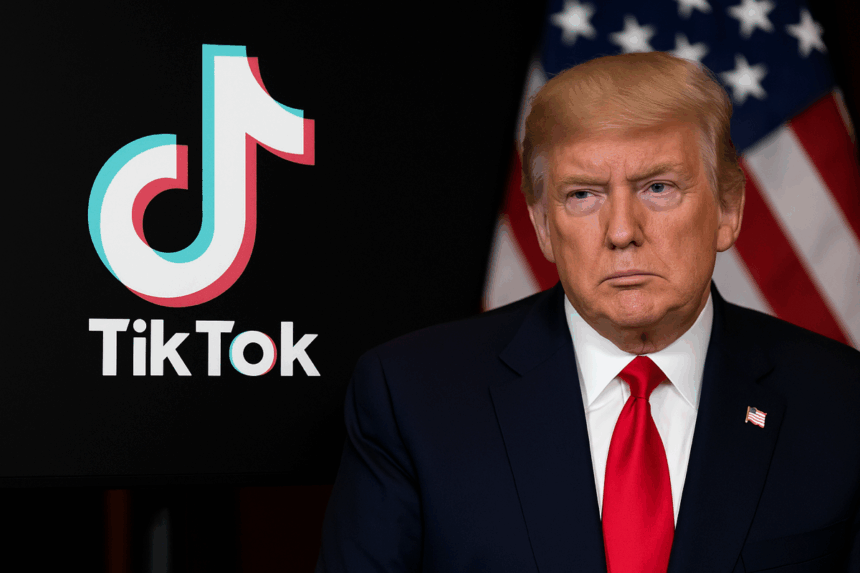TikTok faces yet another delay in its U.S. ban as President Donald Trump signals a third extension. The app’s future remains uncertain amid ongoing national security concerns and broader U.S.-China trade negotiations. TikTok’s status now seems less about immediate enforcement and more a bargaining chip in a wider geopolitical game.
What’s Happening & Why This Matters
The U.S. government initially imposed a ban on TikTok, owned by China’s ByteDance, over fears that the Chinese Communist Party might access user data. The Supreme Court upheld a January ruling forcing ByteDance to either sell TikTok to an American company or face a nationwide ban.
June 19 was the new deadline for the ban to take effect. However, President Trump told reporters he would “probably” extend the ban again but needs approval from Chinese President Xi Jinping. This delay ties TikTok’s fate to broader U.S.-China negotiations.
Dario Garcia de Viedma, a fellow at the Elcano Royal Institute, explains that the sale or ban of TikTok is unlikely to happen in isolation. Instead, it forms part of a complex trade negotiation where each side offers concessions, such as tariff reductions or export controls.
Trump recently announced a new trade deal with China, lowering U.S. tariffs on Chinese goods to 55% and Chinese tariffs on U.S. products to 10%. This deal includes agreements on rare earth minerals and educational exchanges.
Despite improved relations, forcing the sale of TikTok now could upset delicate diplomacy. García de Viedma adds, “It wouldn’t be the first time TikTok bans serve political ends.” He points to India’s 2020 ban of TikTok and other Chinese apps during border tensions as a populist move demonstrating sovereignty.
Interestingly, Trump’s approach contrasts with India’s. While India’s Modi used the ban to show strength, Trump seems to protect TikTok’s current status as leverage, stating he plans “to save TikTok.” García de Viedma says this reflects similar sovereignty concerns framed differently.
Jan Penfrat, a senior policy advisor at European Digital Rights, suspects that the U.S. might eventually pursue a ban on all Chinese apps competing with American offerings. This hints at a broader tech and economic rivalry beyond TikTok.
The Republican Party pushed the bill to divest TikTok primarily over fears that ByteDance could be compelled to hand over U.S. user data to Beijing. However, García de Viedma notes these concerns remain theoretical. Some officials disagree on whether TikTok has transferred data to China.
Meanwhile, TikTok creators remain loyal, showing data privacy worries have not translated into user abandonment.
The U.S. has its data access law, the Clarifying Lawful Overseas Use of Data Act (CLOUD Act), allowing subpoenas of American companies’ overseas data to investigate crimes.
Penfrat and García de Viedma argue TikTok’s data risks resemble those of other social media platforms due to massive device-based data collection.
Penfrat explains, “This has little to do with TikTok’s Chinese origin and more with its business model.” That model collects personal data to fuel recommender algorithms and targeted ads.
Governments, such as the U.S. Immigration and Customs Enforcement (ICE), reportedly purchase personal data on commercial markets, thereby bypassing social media companies entirely.
Should the U.S. acquire TikTok’s operations but not its algorithms, García de Viedma warns the “TikTok economy” — a vibrant platform for creators, culture, and commerce — could collapse. Creators might migrate to platforms like Instagram, reshaping social media dynamics.
Trump could be using this uncertainty as a “midterm strategy” to diminish TikTok’s influence and user base ahead of elections.
TF Summary: What’s Next
TikTok’s U.S. ban extension intertwines with complex trade talks and political strategies. The app’s future depends on negotiations, data privacy debates, and competitive tech policies.
The potential sale or ban will impact creators, advertisers, and geopolitical relations. The evolving situation challenges how governments regulate global tech platforms amid rising U.S.-China rivalry.
— Text-to-Speech (TTS) provided by gspeech


